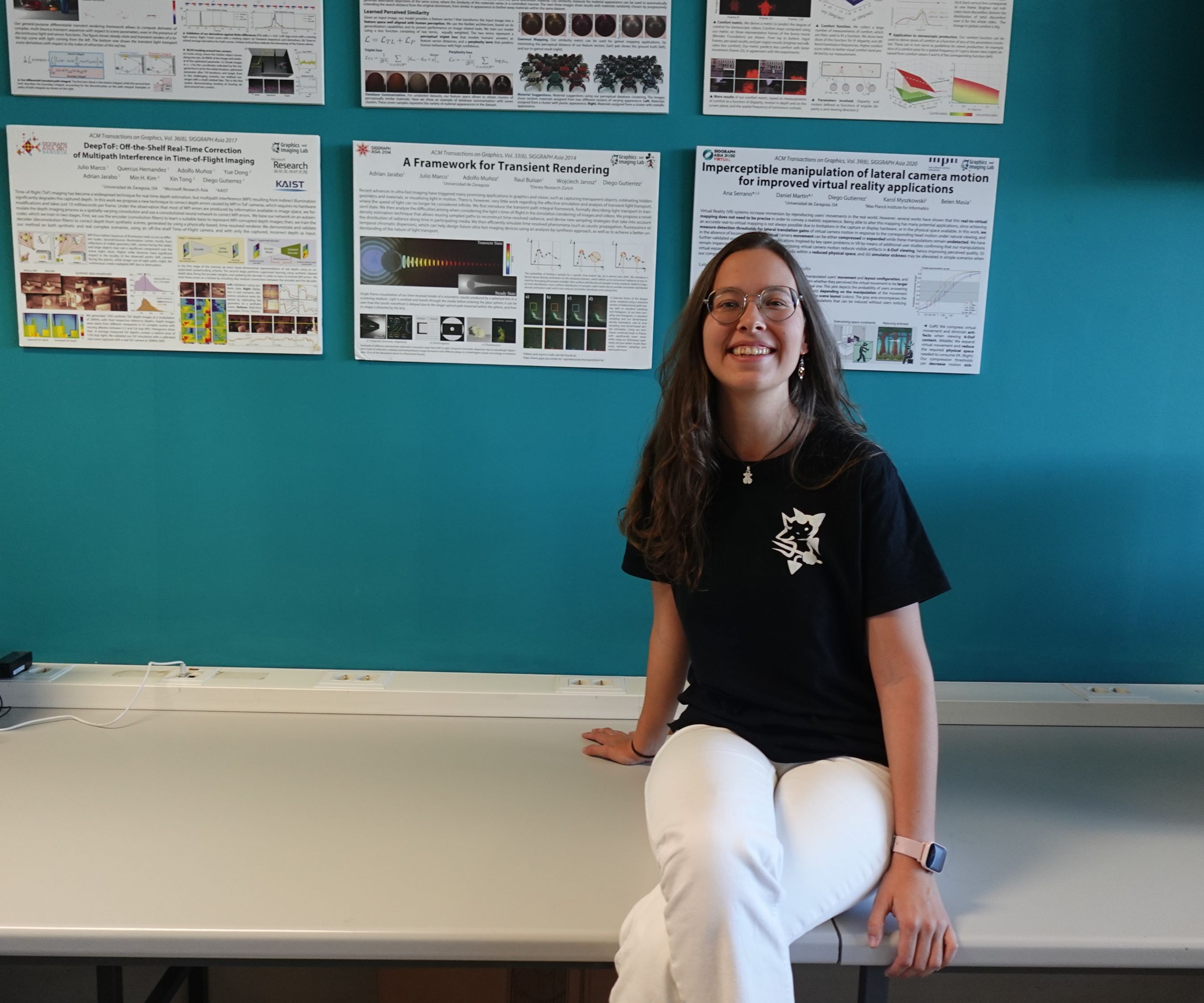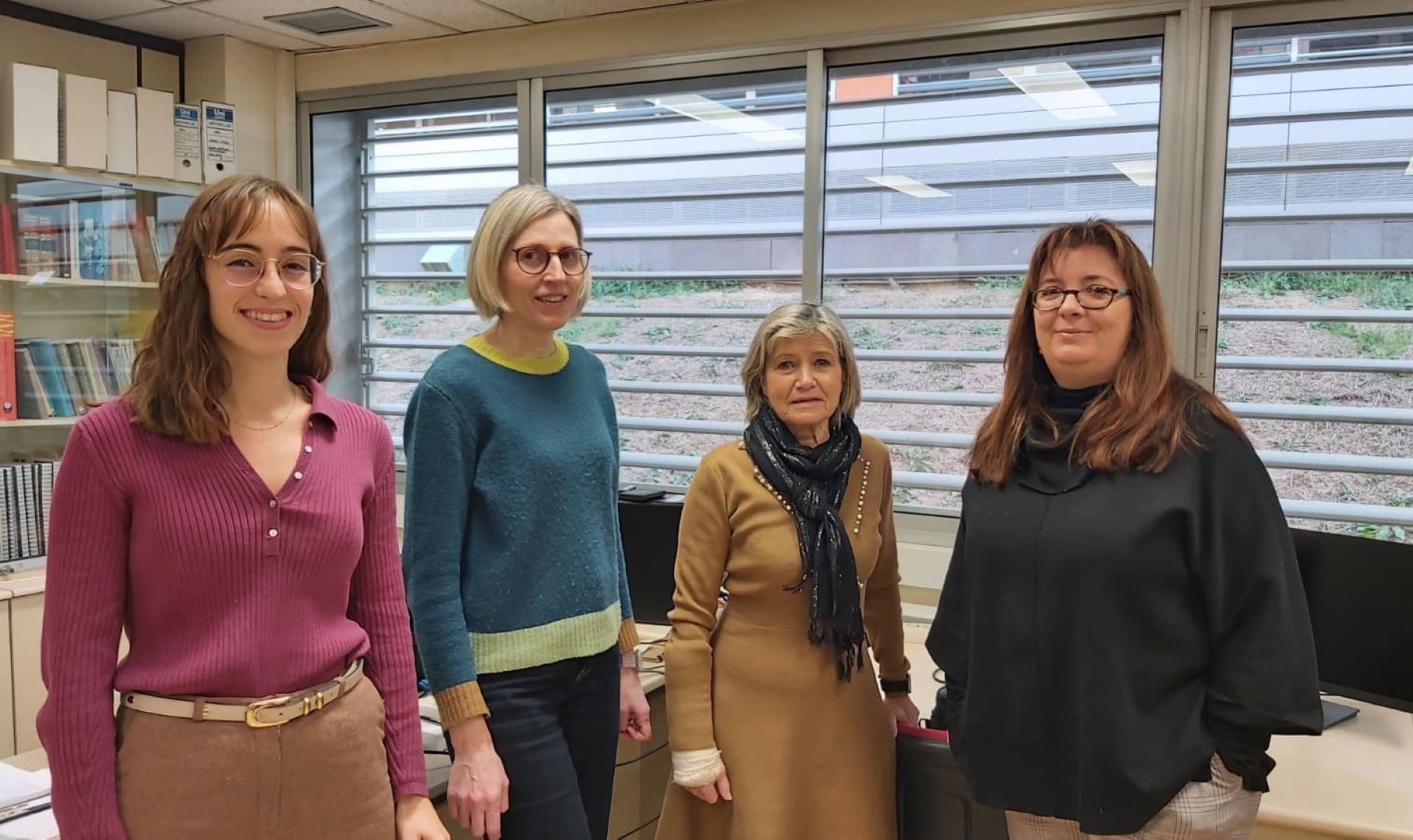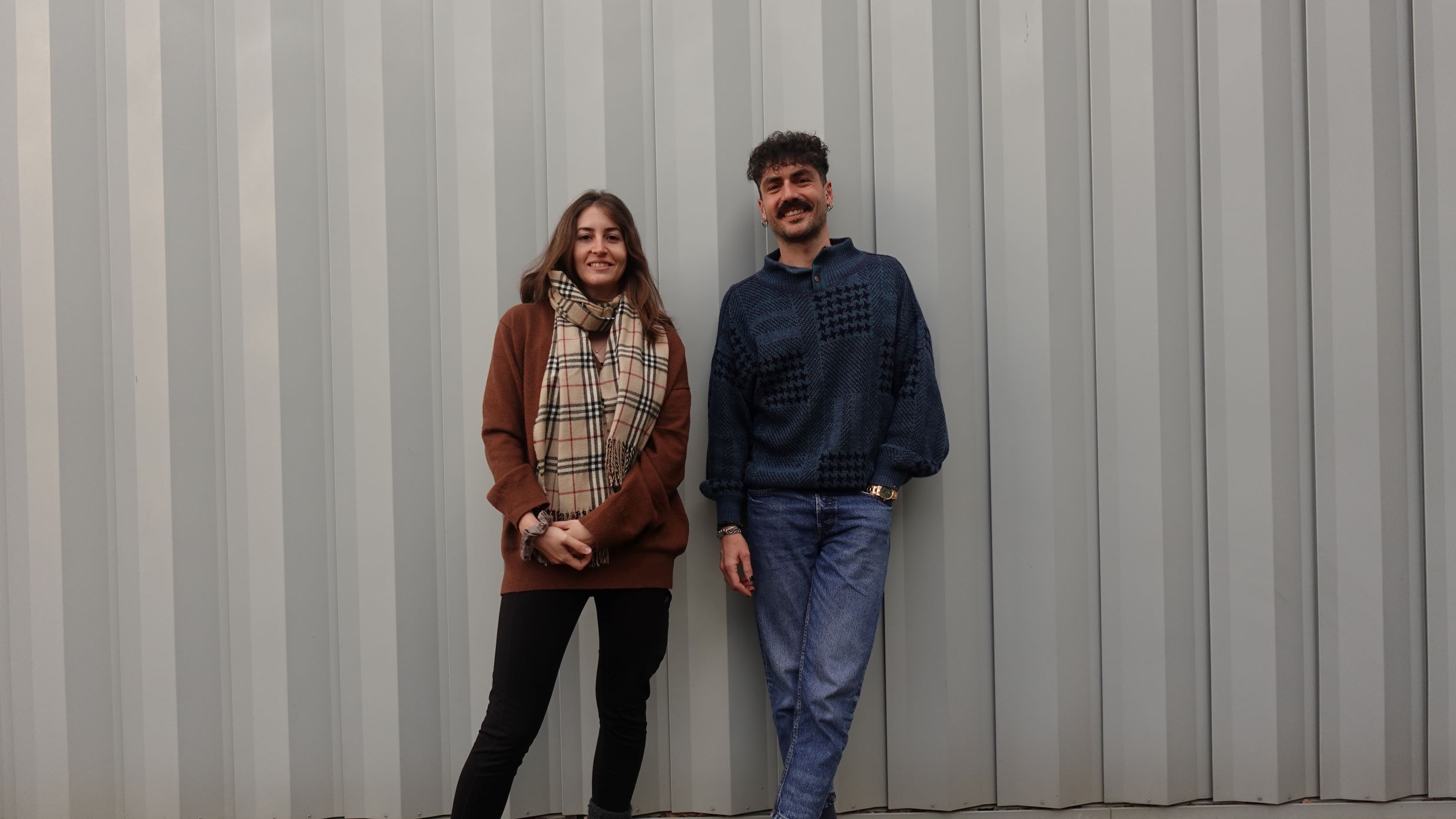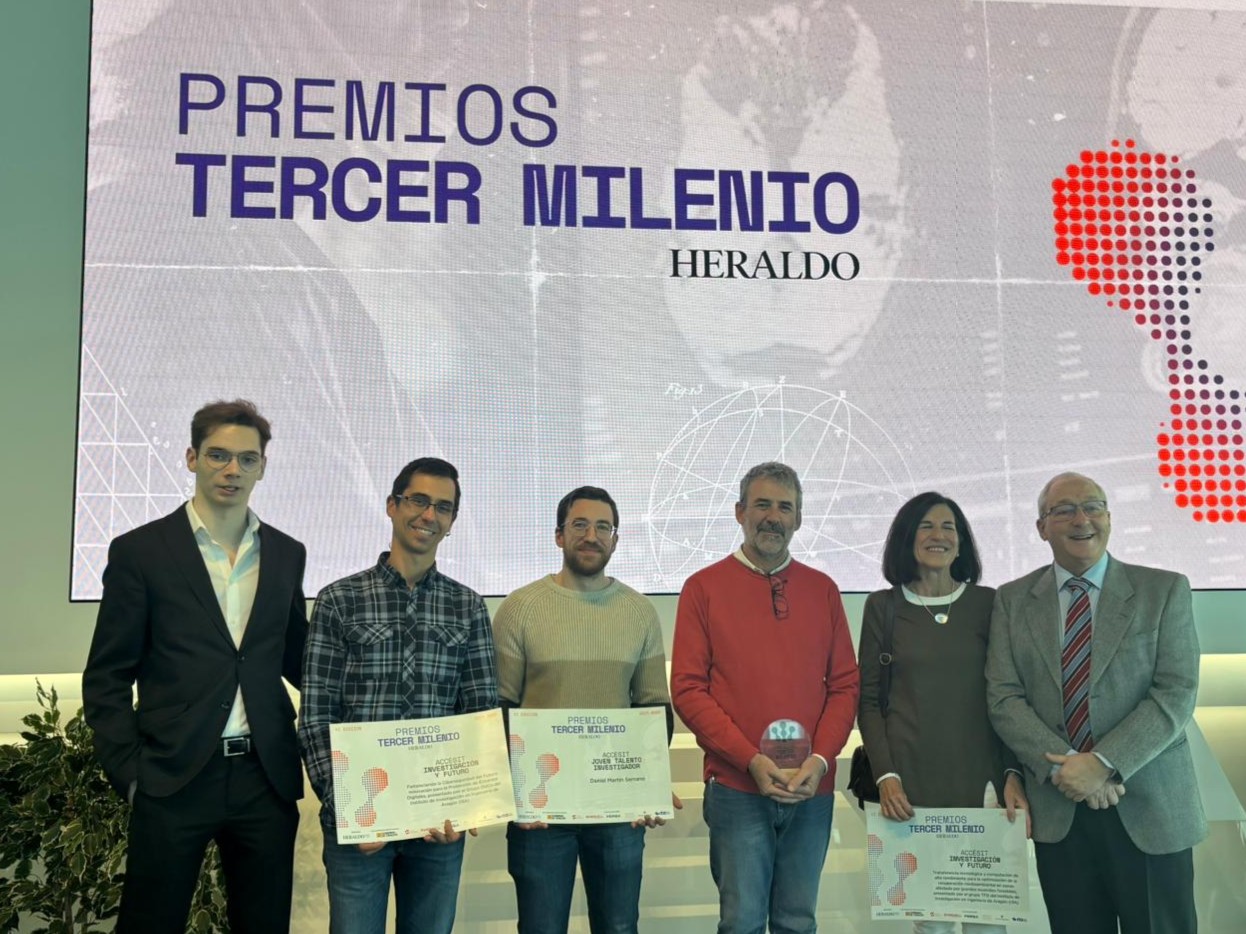
Julia Guerrero Viu, a PhD student at the University of Zaragoza and young researcher at I3A Unizar, has won this year's SCIE-ZONTA-SNGULAR awards, which aim to recognise the contribution of women pursuing doctoral studies in the field of computer science, encourage them to embark on a research career and create role models for new generations, thereby reducing the gender gap.
Julia holds a degree in Computer Engineering from the University of Zaragoza, where she received the Special Award for Official Undergraduate Studies and the Student Award for Training and Values at the same university. She completed a Master's degree in Computer Science, specialising in Artificial Intelligence, at the University of Freiburg (Germany), where she graduated with honours.
In addition, she has received the Google EMEA Women Techmakers Award, an international award for computer science students at all university levels in Europe, Africa and the Middle East, for her academic excellence, leadership and social impact; the WONNOW Award from Microsoft and Caixa Bank, a national award for the best academic record in STEM degrees, and the WiGRAPH Rising Stars scholarship, as one of the best doctoral students in computer graphics worldwide.
Teamwork
Receiving this new recognition now "is an important boost to continue dedicating myself to what I love, research in computer graphics and outreach. I am grateful to the award organisers, the Spanish Computer Science Society (SCIE), ZONTA and SNGULAR, for giving equality and diversity in computer science the importance they deserve. And I am very grateful to my thesis supervisors, Belén Masiá and Diego Gutiérrez, my colleagues at the Graphics and Imaging Lab and my collaborators, because research is always a team effort."
He is currently completing his doctoral thesis in the field of computer graphics, the discipline that studies computer-generated images. In other words, the creation of synthetic images that do not exist, such as those in animated films or video games, but also any image used to simulate reality through digital design, with applications in many industries such as architecture, e-commerce and medicine. Specifically, ‘we are researching how we can model the visual appearance of materials using artificial intelligence, so that it better aligns with human perception. With this, we have developed tools for generating and editing materials in images that are much more intuitive for users, facilitating more efficient and accessible digital design,’ explains Julia Guerrero Viu.
Clear minority in computer science
“For me, research, science and technology are exciting; they give us the power to create new solutions to real problems in society. However, despite the fact that we are living in an increasingly digitalised world, women are still a clear minority in computer science, partly because of gender stereotypes,” says Julia.
In this regard, she highlights the importance of this type of award in raising the profile of female doctoral students and supporting them at the start of their professional careers. ‘Because in order to break down these stereotypes, it is important for society to see that there are women around us who are dedicated to computer science and who enjoy our work. It is important for the younger generations to see that, if they are motivated by these studies, they can do it too,’ emphasises the young researcher from I3A Unizar.
He points to the precariousness and instability of research work, the lack of work-life balance measures and excessive bureaucracy as difficulties in a research career. ‘These problems affect us all, but they always hit the most vulnerable hardest, so if we want to fight for diversity in research, I think we cannot forget about them.’
He acknowledges that, despite the difficulties, ‘I have never regretted my decision to devote myself to computer science and research, quite the contrary. I started my computer science degree without knowing anything about programming, and I soon discovered how much I enjoyed these studies. I think research is a wonderful profession, one in which you never stop learning.’
She stresses the importance of continuing to work towards gender-sensitive dissemination, as well as achieving better working conditions and facilitating access to research careers for everyone.
Her immediate plans for the future are to defend her doctoral thesis and seek new job opportunities for next year. "I am certain that I want to continue working in computer science research, and right now I am exploring different options for doing so, both at universities and in companies, in Zaragoza, other cities in Spain, and also abroad. I am very grateful for all the opportunities that the PhD has given me and the doors that are now opening for me in the future."
The SCIE-ZONTA-SNGULAR Awards
The Spanish Computer Science Society (SCIE), the Madrid Km0 and Andalusia Malaga clubs of Zonta International, and Sngular are organising these awards, now in their fifth year. Their aim is to recognise the contribution of women pursuing doctoral studies in the field of computer science, encourage them to embark on a research career, and create role models for new generations, thereby reducing the gender gap. These awards seek to highlight the need to attract female talent to research in the field of computer science in Spain.
More info: https://www.scie.es/resuelto-el-premio-scie-zonta-sngular-2025/




